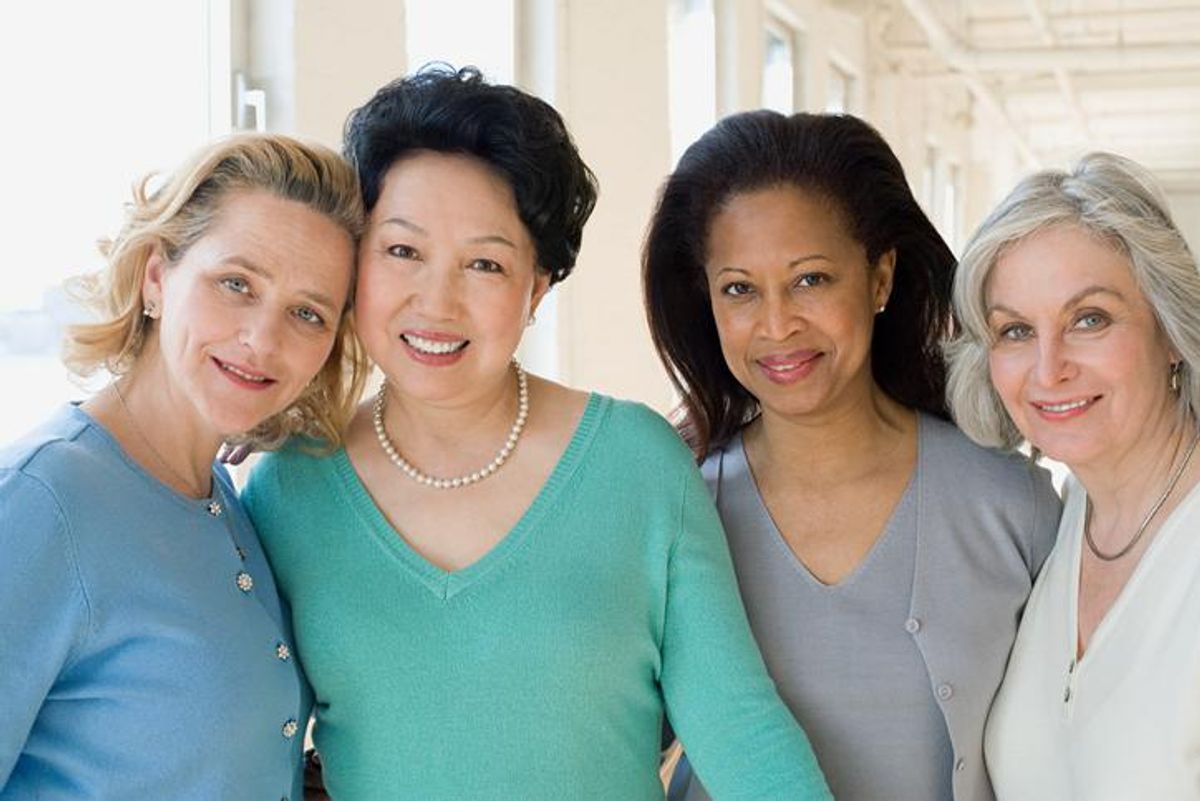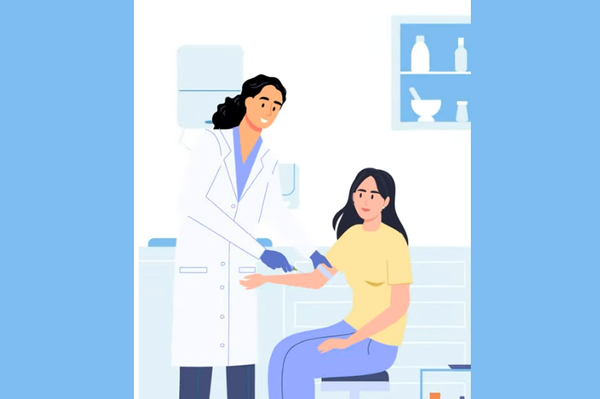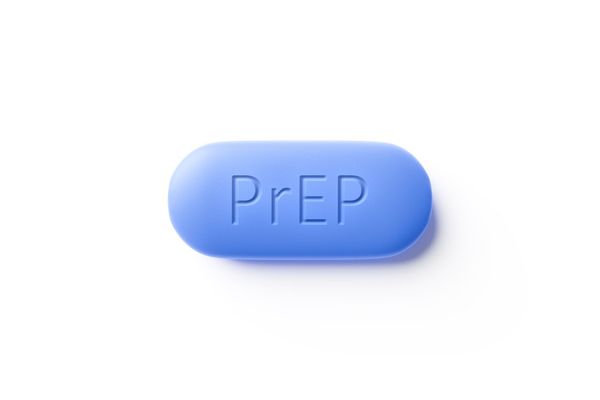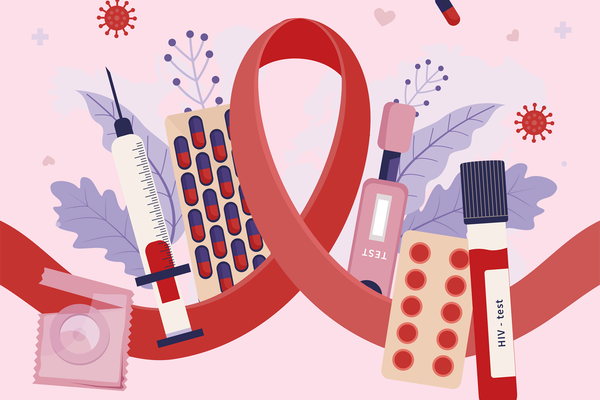In 1986, Stephanie Brooks Wiggins had just moved from Brooklyn to Baltimore with her soon-to-be husband and was excited to start their new life together when she was diagnosed with human immunodeficiency virus (HIV). She was barely 40 years old.
“I was very naive. I had never heard of HIV,” Brooks Wiggins said. Her biggest worry was her new husband. “How was I going to tell him that I had this disease that was going to kill me?”
Now 76, Brooks Wiggins is living a full and active life — but she’s dealt with many health issues alongside HIV over the decades since her diagnosis. She got tuberculosis in her 40s, and struggled with pneumonia several times in her 50s and 60s. She was diagnosed with chronic obstructive pulmonary disease (COPD) in her mid-60s and had a heart attack in her early 70s.
“Now that I'm in my 70s and my HIV is pretty much under control, that’s not an issue anymore,” Brooks Wiggins said. “The aging — and what comes with it — becomes the issue.”
More than 1.1 million people in the United States have HIV, and 23% of them are women.
Thanks to antiretroviral therapy (ART), it’s possible to live a long life with HIV. Although more than 5,000 people died from HIV-related causes in 2019, the number of deaths from HIV has gone down over 80% from its peak in 1995. Because ART works so well to control the virus, people with HIV are living many years after diagnosis and over half of people with HIV in the United States are ages 50 and older.
Before treatment became available, people diagnosed with HIV/AIDS could only expect to live for one to two years after their diagnosis. “I remember the early days where a good year or two was major, especially for women because nobody was studying women,” said Dr. Sharon Allison-Ottey, a geriatric medicine specialist and a member of HealthyWomen's Women's Health Advisory Council (WHAC). Now, she added, HIV is treated much like any other chronic disease.
Growing older with HIV means dealing with the same health changes we all face, but these changes may affect people with HIV differently — and the virus can increase the risk of some potentially serious health problems. Knowing what to expect can help you prepare for these changes.
Common conditions may be more common
Some of the health problems that often affect older people may be more common in those with HIV. These include:
- Cardiovascular disease
- Diabetes
- Kidney disease
- Osteoporosis
- High blood pressure
- Stroke
- Lung disease
- Dementia
- Some cancers
Experts don’t know exactly why people with HIV are more vulnerable to these conditions, but they think chronic inflammation caused by the virus may be a big factor.
Not only are some health problems more common in people with HIV, they tend to show up sooner. Early onset of age-related conditions such as cardiovascular and kidney disease affects HIV-positive people starting at age 36. And women with HIV may be more likely to have these conditions compared to men with the virus.
More medications, more problems
As we age, it’s not unusual to need a growing number of medicines to treat our various health problems. For people with HIV, keeping track of these medications can be especially complicated because of the way they may interact with ART.
Medications used to treat common conditions such as high blood pressure, heartburn, allergies and high cholesterol can all interact with ART. These drug interactions may make the medicines you take less effective and/or cause health problems as serious as kidney failure.
Allison-Ottey says the best way for older people with HIV to avoid drug interactions is to make sure everyone on their care team — from general practitioners and specialists to pharmacists and family members — has a complete list of what they’re taking, including over-the-counter medicines.
When Brooks Wiggins started seeing an HIV specialist in addition to her primary doctor, she set up a conference call between the two health professionals so they could compare notes about medications and check for interactions. “It was important to me to know that they were on the same page.”
Challenges of “the change” with HIV
Women with HIV may go through menopause earlier, and have worse symptoms, than those without the virus. Since ART on its own can cause side effects similar to hot flashes, said Allison-Ottey, menopause can be extra unpleasant for women with HIV.
Menopause can also worsen immune system problems common in people with HIV, which can cause inflammation linked to health problems, such as heart disease and diabetes.
Hormone replacement therapy (HRT) may be an option for helping to relieve menopause symptoms while also preventing bone loss, which can be particularly problematic for people with HIV. According to the Centers for Disease Control and Prevention (CDC), there are no known interactions between HIV drugs and hormone therapy.
HIV and the brain
As the brain ages, many older people may find themselves experiencing changes such as memory loss or trouble concentrating. But in people with HIV, these changes may be more common — and more serious.
Between 25% and 50% of people with HIV have HIV-associated neurocognitive disorder (HAND), an umbrella term that covers a variety of cognitive and mood disorders, including dementia. One study of more than 9 million people found that having HIV increased the risk of cognitive problems and dementia by up to 80% compared to people without HIV. Lack of treatment with ART is the biggest risk factor for cognitive decline.
Some cancers linked to HIV
A few kinds of cancer, known as AIDS-defining cancers — Kaposi sarcoma, lymphoma and cervical cancer — are much more common in people with HIV or AIDS.
HIV increases the risk of other types of cancer as well. Compared with the general population, people with HIV are:
- 19 times more likely to be diagnosed with anal cancer
- 8 times more likely to be diagnosed with Hodgkin lymphoma
- 3 times more likely to be diagnosed with liver cancer
- 2 times more likely to be diagnosed with lung cancer and oral cavity/pharynx cancer
Since everyone’s overall cancer risk increases steadily with age, it’s important for older folks with HIV to understand their risk and speak to their healthcare providers about screening, prevention and early detection when possible. For people with HIV, taking ART can greatly lower the risk of getting these cancers, as well as some other types of cancer (such as liver cancer) that aren’t linked to HIV.
When in doubt, reach out
Allison-Ottey said that as women with HIV get older, they should pay close attention to their bodies. When you notice an unusual symptom, she said, you should reach out to your HCP right away instead of trying to ride it out.
Both Allison-Ottey and Brooks Wiggins said that it can make a huge difference for older women with HIV to share their experiences. Brooks Wiggins is cofounder of Older Women Embracing Life (OWEL), an organized network of senior women that provides support for women impacted by HIV/AIDS, as well as their families and care providers.
“One of the reasons we started the group is that there was no group,” Brooks Wiggins said. “There wasn't anybody talking to older women — talking to women at all, really — about living with this disease.”
Aside from making sure they have a support system, Brooks Wiggins encourages women living with HIV to work toward self-acceptance. “Accepting who you are is an important part of living with the disease, even as you age.”
This resource was created with support from BD, Janssen and Merck.
- When Grandma Has HIV - HealthyWomen ›
- Stories of Black women aging with HIV: 'My life wasn't what I hoped it ... ›
- Your Guide to HIV & Aging - HealthyWomen ›
- It May Come as a Surprise, but Older Women Get HIV, Too ... ›
- HIV and Older Women - HealthyWomen ›
- Keeping My HIV Diagnosis a Secret for a Year Taught Me a Lot About People’s Stereotypes - HealthyWomen ›
- I Believe I’m Aging Faster Because I Have HIV - HealthyWomen ›
- Aging with HIV Requires Whole Person Care - HealthyWomen ›
- How HIV Affects Menopause and Menopause Affects HIV - HealthyWomen ›
- En qué forma el VIH afecta la menopausia y viceversa - HealthyWomen ›
- Connection Between HIV and Mental Health - HealthyWomen ›





